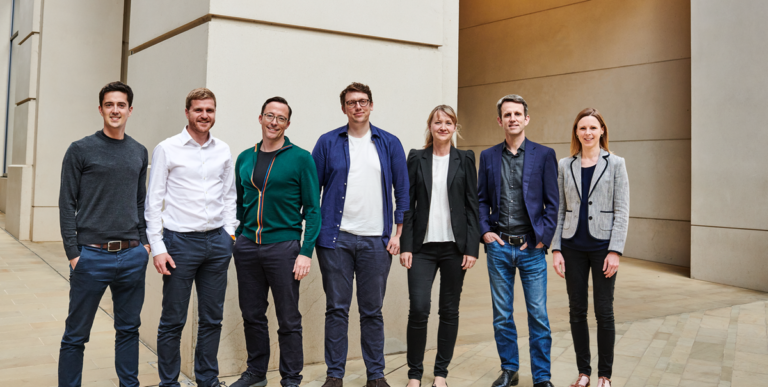
Kiko Ventures places its face on science specialists to supply and develop investments in local weather expertise
Kiko dares
Late final month, London-based investor Kiko Ventures introduced the launch of a $450 million “platform” to assist climatetech corporations. The aim, the co-founders say, is to take a extra versatile method to funding science-led startups working within the business. Giving startups time to convey their merchandise to market is essential to technique.
It in all probability should not come as a shock that VCs have caught the attraction of local weather expertise. As I write this, the UK is making ready to take care of an increase in temperature that may see a well being hazard and life warning come into impact over the subsequent two or three days. Such climate occasions was comparatively uncommon within the UK, however are actually changing into extra frequent. It is a comparable story everywhere in the world. From winter floods to summer time droughts and warmth waves, local weather change is inflicting actual issues. An excellent motive for the renewed curiosity in local weather expertise.
And in response to Local weather Tech VC, corporations engaged on local weather options have attracted round $40 billion in funding in 2021. Investor enthusiasm is well defined by the well-known equation that massive downside + resolution = investor alternative, however we should always do not forget that we have been in the same place earlier than.
For instance, the late 2000s noticed a growth in cleantech funding, significantly in North America. By 2012 the bubble had burst and plenty of VCs had burned fingers. There have been plenty of causes, however probably the most vital components was the velocity to market, or extra particularly, the dearth of it. VCs have been used to working with time horizons of three to 5 years. Good for software program, nevertheless it wasn’t a mannequin that suited a hardware-led cleantech business.
So what has modified? Talking to Kiko Ventures’ founding companions, Robert Trezona and Arne Morteani, I used to be eager to listen to their tackle the alternatives within the business and the way traders can keep away from the pitfalls of the previous.
Evergreen Funding
Kiko Ventures was based by FTSE 250 listed funding agency IP Group. As Trezona explains, IP Group has already been an energetic investor in local weather expertise, so the launch of the brand new platform primarily builds on current funding methods whereas establishing a model particular to startups tackling the greenhouse gasoline emergency.
“We’re searching for transformative corporations,” he says. “These may be corporations which can be engaged on groundbreaking science, but in addition corporations with enterprise fashions that may be scaled in a short time.”
Kiko Ventures began with £175m of current (IP Group) Climatetech belongings and has since made plenty of new investments, that are but to be introduced. Portfolio corporations embody C-Seize (CO2 seize applied sciences), Mixergy (sizzling water applied sciences) and Magnomatics (power environment friendly motors and turbines).
A standard issue is that they’re science and engineering corporations – a standing shared by many corporations within the local weather expertise business. From Morteani’s perspective, such corporations are usually not at all times effectively served with typical VC fashions.
“The issue with VC funds is that they run out of cash after which their conduct begins to alter,” he says. Kiko’s construction is totally different. As an organization listed on the London Inventory Alternate, IP Group is backed by institutional traders. This, in flip, implies that Kiko can take a longer-term method. As an evergreen investor, he has a limiteless fund time period. “We are able to behave extra like a household workplace,” provides Morteani.
What does this imply for portfolio corporations? Nicely, Kiko is positioning itself as a lifecycle investor, keen and in a position to present funding from pre-seed, seed, Sequence A and past.
As such, Kiko is ready to work with founders within the analysis section – earlier than a enterprise mannequin is totally developed – and supply ongoing assist as the answer strikes out of the labs and onto the market.
A scientific background
This requires a sure level of belief. Kiko Ventures appears to be like at applied sciences like hydrogen fuels or the processes wanted to seize carbon extra successfully. It is laborious science, and the issue for a lot of early-stage traders is knowing not simply the enterprise mannequin and the market, however the extra elementary query of whether or not the expertise is definitely viable. For that reason, the KikoVentures staff consists of specialists. “All of us have a background in science,” says Trezona.
By offering evergreen capital, Kiko hopes to keep away from the pitfalls of the previous, nevertheless it wasn’t simply investor deadlines that stalled the earlier cleantech growth. The market situations have been in all probability not proper. Right now we’ve got a “local weather emergency”. A decade in the past we heard in regards to the way more harmless-sounding world warming. Applied sciences – like carbon seize – have been seen as a value and there appeared to be no actual incentive for emitting corporations to spend money on them.
So is something totally different? Are immediately’s local weather tech startups (and their traders) interesting to a extra receptive base of potential prospects?
Evidently the reply to this query is sure. The tempo of transition might typically appear icy, however regulation, politics, buyer demand, and investor stress are all working collectively to maneuver corporations towards web zero. That ought to imply that applied sciences that have been as soon as seen as costly indulgences have gotten mainstream. “Many corporations are formulating CCS (carbon seize and storage) plans,” says Trezona. “And firms are striving to achieve entry to cutting-edge local weather expertise.”
This isn’t a bubble that’s prone to burst. However what we’re good to see is the emergence of traders who’re keen to assume longer-term.